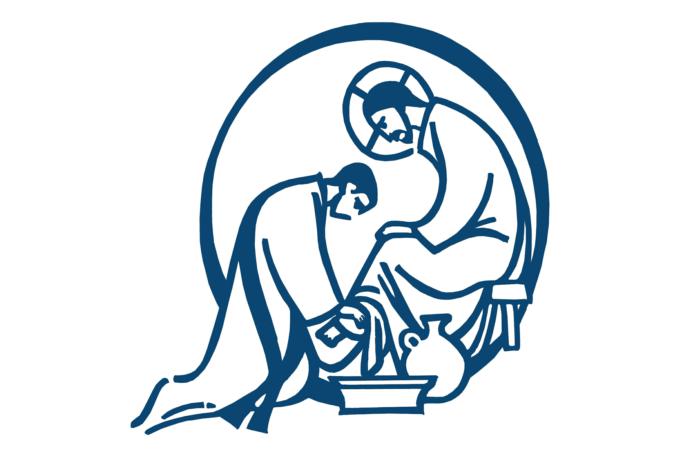Diakonia: A revolution of tenderness
''What is tenderness? It is love that comes close and becomes real. It is a movement that starts in our heart and reaches the eyes, the ears, and the hands."
With these words from his 2017 TED talk, Pope Francis calls us back to our roots as disciples. In one of the most moving stories of Mark's Gospel a woman who has suffered for 12 years with a hemorrhage takes a risk hoping to experience freedom from the medical condition that has banished her from belonging to the community. Bending low to touch the cloak of Jesus as he passes she is miraculously healed. Aware that he has been touched, Jesus stops and turns. He wants to see her face and hear her story; he wants her to know her identity as a beloved daughter. In every encounter, Jesus looks with eyes of compassion and mercy. His life and ministry were rooted in diakonia -- merciful, loving service. And this ministry of service took place wherever the marginalized and forgotten people were found, on the roads and byways and among the poor and sick and ostracized of his time. In fact, he often goes out to find them. Jesus gives us an example of how we are to live out our faith. The gospel shows us how we are to be evangelizers of the Good News in our time and place -- by going out into the streets, into the places where the marginalized live, where we can encounter our brothers and sisters, hear their stories, and see the face of Christ. This is the life of diakonia.
Vatican II refocused the Church on its core mission, a call to evangelize by serving the world, by diakonia. In order to sacramentalize this call to diakonia the bishops restored the Order of the Permanent Diaconate after a hiatus of more than 700 years. Pope Francis in a recent speech to the Roman Curia reminded the Church to live and serve with a "diaconal conscience," that is, to have hearts of service to the world. Deacons are ordained to be ministers of charity and service, and so serve as sacramental reminders of the Church's mission to bring the healing love and mercy of Christ into the world. We are called, as well, to bring their stories back to the Church so that the Church herself may become a more perfect instrument of mercy in the world. Deacons are also meant to be a beacon -- reminding each one of us that we are all called by baptism to live out this same mission of service to our broken world.
In 2018 we mark the 50th anniversary of the restoration of the Permanent Diaconate in the United States. Since that time the diaconate has grown to more than 19,000 deacons in the U.S. In Boston, the Spirit is moving many men, with the profound support of their wives and families, to serve the Church as permanent deacons. But there is a deeper part of this call, a truth and teaching that this vocation can offer our Church and our world that is longing to see God's face and to hear the Good News. Pope St. John Paul II saw the ministry of deacons as not simply one ministry among others, but rather as "the driving force for the Church's diakonia."
Each pope since Vatican II has been very intentional in holding up the centrality of the call to diakonia in the Church, and the particular role of the deacon, as a crucial part of their vision. Pope St. John Paul II, in the Jubilee year 2000, called deacons to be "active apostles in the new evangelization" through a "spirituality of service." Pope Benedict XVI asked every Christian to see every encounter in service to the poor and marginalized as an encounter with Christ that "gives life a new horizon and a decisive direction." Pope Francis invited deacons to see their role as "guardians of service in the Church" and for our parishes to understand that "the sensitivity to the formation of a 'diaconal conscience' can be considered the basic motive that must permeate Christian communities." Pope Francis calls on everyone to be ministers of a "revolution of tenderness" that will transform our world.
With deacons as examples, can we ignite this revolution of tenderness in each of our parish communities? Can we show the world the face of Christ by stepping out of our church buildings and encountering our brothers and sisters impacted by addiction and violence? Can we meet Christ in the refugee and immigrant, in the homeless and ostracized? This 50th anniversary year of the Diaconate invites us to see with new eyes and listen with new ears to the stories of our sisters and brothers from the margins of our communities and, as Jesus did when he stopped to encounter the woman with the hemorrhage, allow these stories to transform our hearts and our Church and sow the seeds for a "revolution of tenderness."
Deacon Dan Burns serves at St. Mary-St. Catherine of Siena Parish in Charlestown, Deacon Chris Connelly is Director of Formation for the Permanent Diaconate, and Deacon Paul Kline serves in the South Boston Seaport Catholic Collaborative.



















